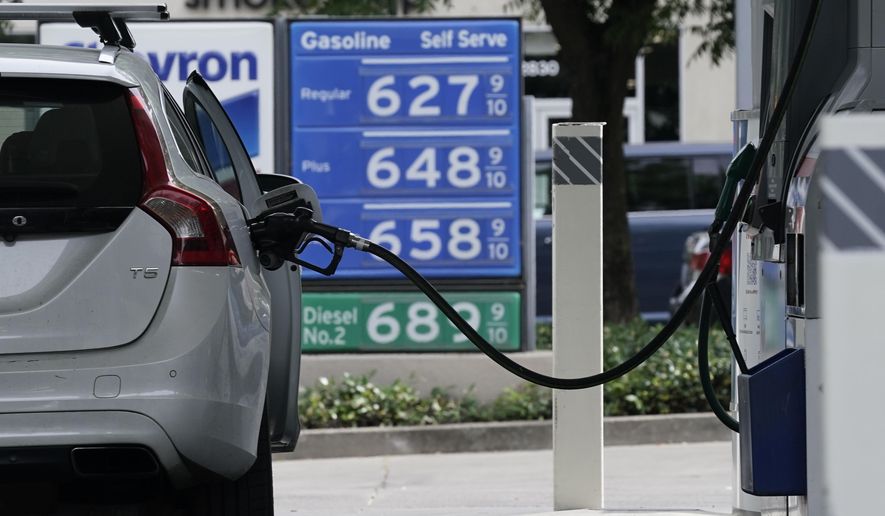President Biden on Thursday warned Americans that they could be paying high gas prices for a while longer, saying that energy costs will remain high until Russia is driven from Ukraine.
Speaking at a press conference in Madrid, where he wrapped up a three-day summit of the North Atlantic Treaty Organization, Mr. Biden was asked how long Americans will be paying a premium for gas.
“As long as it takes, so Russia cannot, in fact, defeat Ukraine, and move beyond Ukraine,” Mr. Biden responded. “This is a critical, critical position for the world.”
Gas prices are expected to remain near record highs as Americans head into the July 4th holiday weekend, typically one of the busiest travel times of the year.
Americans are paying $4.86 per gallon for gasoline, down slightly from the $4.94 that they were paying a week ago, but still near the record highs reached earlier this year.
Speaking Thursday, Mr. Biden said that imposing a global price cap on Russian oil would help bring Americans some relief at the pump. He pushed for the price cap earlier this week at the summit of the world’s seven largest economies, known as the G-7, but was unable to strike a deal.
SEE ALSO: Biden says he supports changing filibuster rules to codify abortion rights of Roe v. Wade
“We should consider putting a cap on the amount of money the world would pay for Russian oil,” he said.
Mr. Biden had pushed to impose a global price cap on Russian oil to cut off Moscow’s energy profits, which are helping President Vladimir Putin finance his war in Ukraine. The summit concluded with an agreement to review the idea but no clear path for imposing such a price limit.
Implementing a plan would be incredibly difficult, especially for the European nations with deep economic and trade ties with Moscow. Russia still supplies the majority of Europe’s oil, even as the European Union seeks to wean itself off Russian energy.
G-7 leaders also have much more work to do to figure out the technical aspects of delivering a price cap. It would require a process to trace Russian oil that flows out of a series of pipelines and combines with millions of barrels of oil exported every day from other oil-producing countries.
European Council President Charles Michel expressed skepticism about the plan this week.
“I’m careful and cautious. We are ready to go into the details. We are ready to make a decision together with our partners, but we want to make sure that what we decide will have a negative effect [on Russia] and not a negative effect for ourselves,” Mr. Michel said at a press conference.
SEE ALSO: Biden planning to give speech about Jan. 6 once House committee completes probe: Report
Mr. Biden sought to entice other G-7 leaders to go along with the price cap by offering to lift sanctions on insurance for cargo ships transporting Russian oil. Under Mr. Biden’s plan, the sanctions would be lifted only for countries agreeing to buy Russian oil at a maximum price.
A statement from G-7 leaders this week suggested they were open to Mr. Biden’s plan but did not reach a formal consensus.
“We will consider a range of approaches, including options for a possible comprehensive prohibition of all services, which enable transportation of Russian seaborne crude oil and petroleum products globally, unless the oil is purchased at or below a price to be agreed in consultations with international partners,” the statement said.
• Jeff Mordock can be reached at jmordock@washingtontimes.com.




Please read our comment policy before commenting.